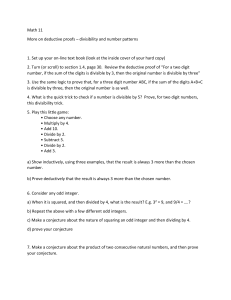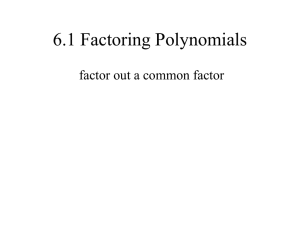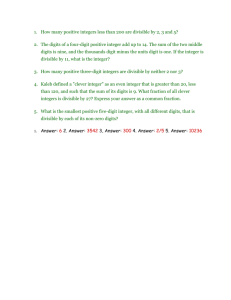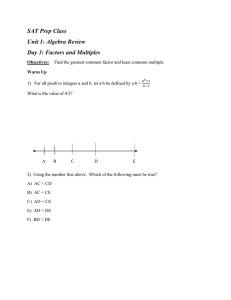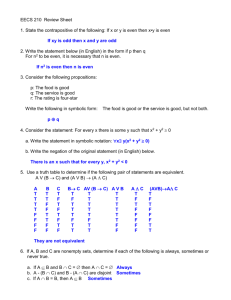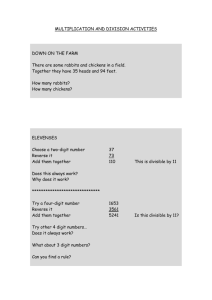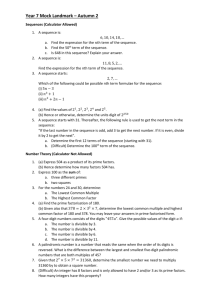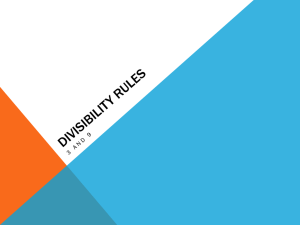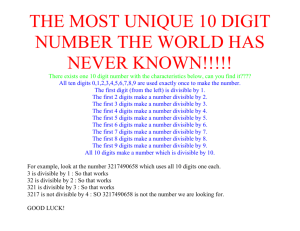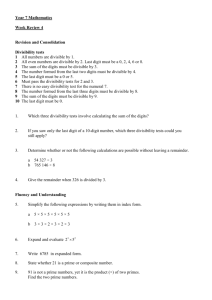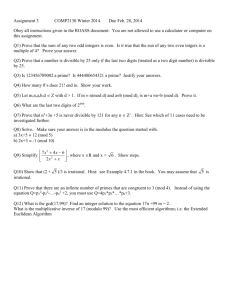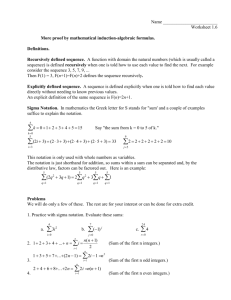Some Simple Number Problems
advertisement
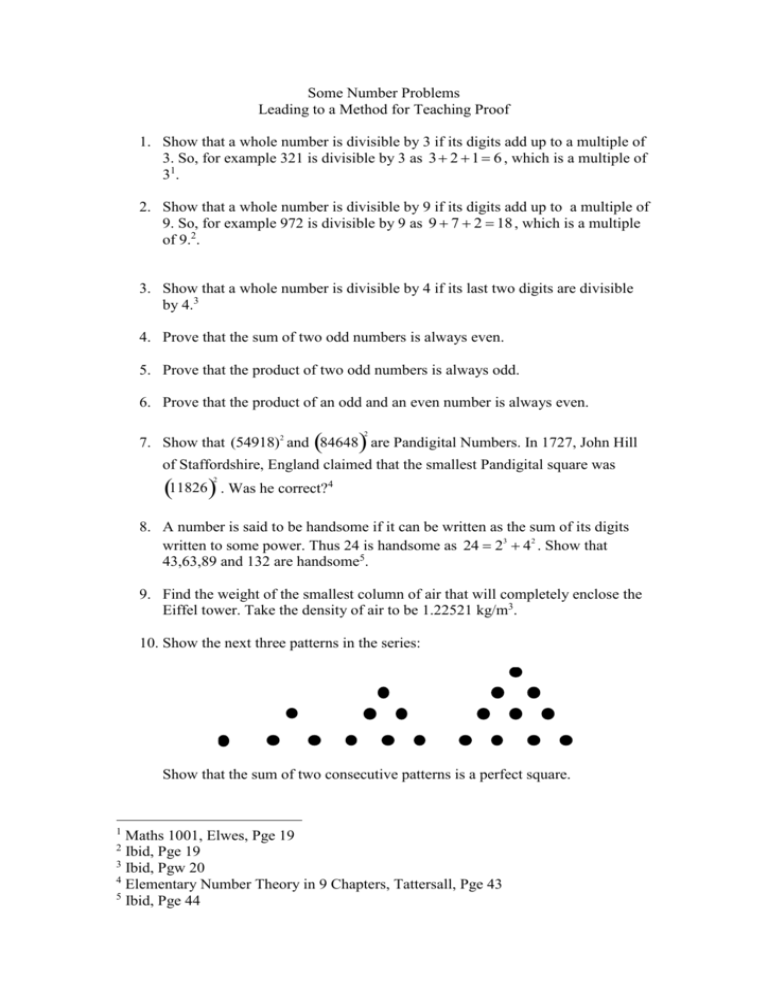
Some Number Problems Leading to a Method for Teaching Proof 1. Show that a whole number is divisible by 3 if its digits add up to a multiple of 3. So, for example 321 is divisible by 3 as 3 2 1 6 , which is a multiple of 31 . 2. Show that a whole number is divisible by 9 if its digits add up to a multiple of 9. So, for example 972 is divisible by 9 as 9 7 2 18 , which is a multiple of 9.2. 3. Show that a whole number is divisible by 4 if its last two digits are divisible by 4.3 4. Prove that the sum of two odd numbers is always even. 5. Prove that the product of two odd numbers is always odd. 6. Prove that the product of an odd and an even number is always even. 2 7. Show that (54918)2 and 84648 are Pandigital Numbers. In 1727, John Hill of Staffordshire, England claimed that the smallest Pandigital square was 11826 . Was he correct?4 2 8. A number is said to be handsome if it can be written as the sum of its digits written to some power. Thus 24 is handsome as 24 23 42 . Show that 43,63,89 and 132 are handsome5. 9. Find the weight of the smallest column of air that will completely enclose the Eiffel tower. Take the density of air to be 1.22521 kg/m3. 10. Show the next three patterns in the series: Show that the sum of two consecutive patterns is a perfect square. 1 Maths 1001, Elwes, Pge 19 Ibid, Pge 19 3 Ibid, Pgw 20 4 Elementary Number Theory in 9 Chapters, Tattersall, Pge 43 5 Ibid, Pge 44 2 11. Show that every perfect square is either a multiple of three or one more than a multiple of 3. (i.e. they take the form 3k and 3k 1 )6. 12. Show that every perfect square takes the form 4k or 4k 1 , where k is an integer. 13. Use the result of Question 13 to show that no number in the following sequence 1,11,111,1111,11111,K can be a perfect square. 6 Elementary Number Theory, Burton, Pge 15
